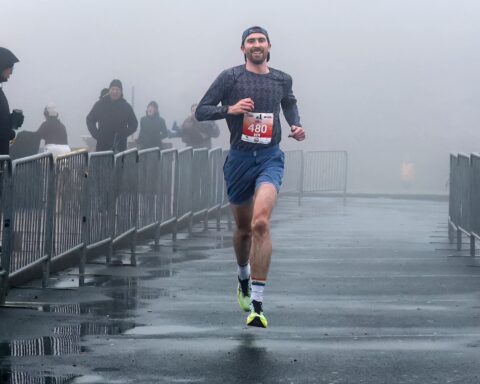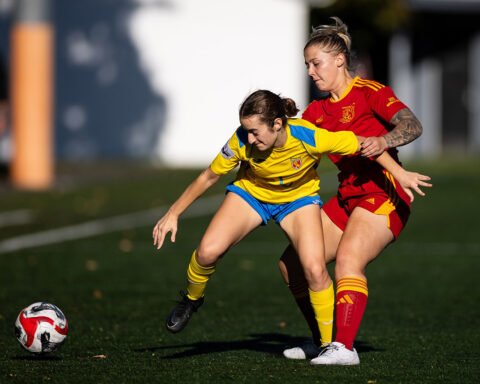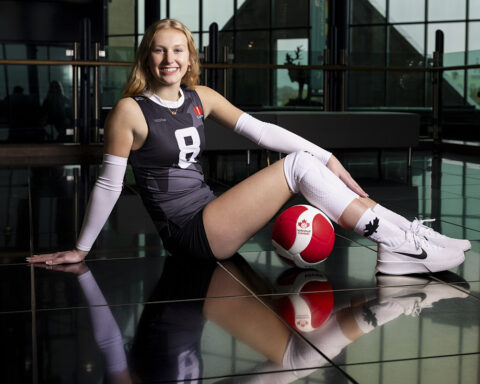 Newfoundland figure skater Kaetlyn Osmond at the Olympics.
Newfoundland figure skater Kaetlyn Osmond at the Olympics.
OTTAWA, ON – The sixty one National Sports Organizations that govern amateur sports in Canada say they need an additional $104 million in funding if they are to sustain operations and avoid financial peril in a new report re;eased by the Canadian Olympic Committee and Canadian Paralympic Committee.
They say the federal government needs to update it’s funding model which has not kept up with the financial and operational demands on the NSOs. Without an increase to funding, support for athletes at all levels will suffer, and the system will be poised to take a step backwards.
Funding for national sport organizations (NSOs) has not since 2005, according to a study commissioned by the Canadian Olympic Committee and Canadian Paralympic Committee and completed by the financial consulting company Deloitte.
2024 Olympics will be a crunch
With the Paris 2024 Olympic and Paralympic Games quickly approaching, the Canadian Olympic Committee (COC) and Canadian Paralympic Committee (CPC) are calling on the federal government to make important investments in Canadian athletes and in a stronger, safer sport system.
Deloitte wrote in its study that a $104 million increase in annual federal funding for NSOs is required to avoid a substantial reduction in the services and programs operated by the organizations.
NSO’s face 134 million deficit
A five-year forecast shows that NSOs will run a deficit of $134 million, Deloitte said.
Canadian NSOs have been struggling in recent years amid worsening finances. While the federal government’s funding to NSOs has been unchanged for nearly two decades, costs for travel, logistics, and proper food and training for athletes has skyrocketed.
An increase to Canadian sport system funding is urgently needed for NSOs to continue their core work of supporting athletes, provincial federations and clubs across the country. The significant gap in funding of $104 million is caused by 19 years of inflation since the last increase to sport funding in 2005 ($20 Million), the sunsetting of issue-specific funding ($57 Million), and the cost of increased demands on NSOs from stakeholders ($27 Million). Now, NSOs are being asked to do even more, with fewer resources, and the important progress that has been made in safe sport, gender equity, community access and mental-health support, amongst others, is in jeopardy.
“we’re on the brink of a crisis”
“We have known this was a growing issue but seeing the numbers in black and white really highlight that we’re on the brink of a crisis. NSOs cannot continue on this trajectory. They can’t run deficits, and if nothing changes difficult decisions will have to be made. The Future of Sport Commission will provide important insights about the important work done to strengthen the system in recent years and how it can improve further, but without an immediate injection of funds athletes will suffer in the next 12-18 months as we prepare to act on the findings. These funds are necessary for the continued development of a safe and inclusive sport in Canada that will benefit all Canadians.”
– David Shoemaker, COC Chief Executive Officer and Secretary General
“Paralympic sport and Para sport have made so many advances in recent years, truly illustrating the power and importance of inclusion, however this progress will be significantly stalled without further investment in the Canadian sport system,” said Karen O’Neill, CEO, Canadian Paralympic Committee. “The National Sport Organizations are critical to the development of Para sport across Canada, and in order to foster a healthy culture of excellence and provide more athletes with the opportunities and tools to succeed, it is clear more resources are needed.”
– Karen O’Neill, CPC Chief Executive Officer
“National Sport Organizations are mandated to support national teams and grow sport in Canada. Our day-to-day costs are increasing with inflation like every Canadian’s, but we also have an important role in ensuring sport is as safe and inclusive as possible. We cannot properly fulfill those duties without an increase in funding. This is a bipartisan issue that affects every community in Canada. A strong, inclusive sport system is crucial for the physical and mental health of millions of Canadians of all ages”
– Casey Wade, Canoe Kayak Canada Chief Executive Officer








